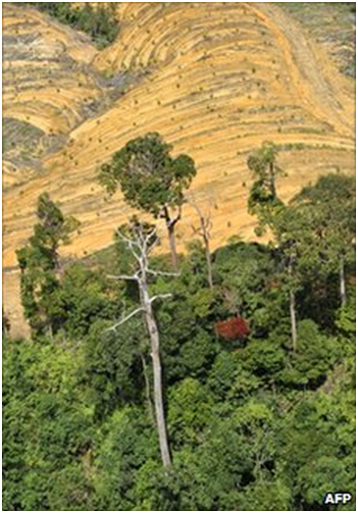‘Increasing yields is only the first step to economic development’
Rome, 24 September 2012 – The President of the International Fund for Agricultural Development (IFAD), Kanayo F. Nwanze, will join world leaders at the African Green Revolution Forum (AGRF) in Arusha, Tanzania, to address how linking farmers to markets can mean transformation in African’s agricultural sector. (Photo: Oumar Diédhiou, 22, weeds a roselle (locally known as bissap) patch in his field near the village of Badiana, ©IFAD/Olivier Asselin)
“When small farmers in developing countries double and triple their yields, it is only the first step on the road to food security and economic development,” said IFAD’s President, Kanayo F. Nwanze prior to his departure for Tanzania. “If we can ensure that food gets efficiently, safely from the farmer’s field to the market, and with extra money in the farmer’s pockets, it is only then we can start to see true economic growth and transformation for Africa.”
The forum, hosted by the Republic of Tanzania, will bring together African heads of state or government, ministers, the private sector, financial institutions, farmers, civil society organizations and scientists to deliberate and develop concrete investment plans for scaling up agricultural development in Africa. As a keynote speaker, Nwanze will join former UN Secretary General Kofi Annan, who will be chairing the forum, Bill & Melinda Gates Foundation Co-Chair Melinda Gates, and Yara International President & CEO Jørgen Ole Haslestad. Nwanze will share his own experience in agriculture in Nigeria and during his tenure as Director-General of the Africa Rice Centre (WARDA).
“Investment in smallholder agriculture and rural development is the foundation for economic growth,” he said. “Having witnessed the capacity of African farmers to adopt new technology and make it work to their profit, I know that smallholder agriculture needs to be seen as a business.”
Agriculture remains a critical sector for African economies. It accounts for about 30 per cent of sub-Saharan Africa’s gross domestic product and a high portion of export value. In most countries, agriculture accounts for more than 60 per cent of employment. But despite this, African smallholder farmers are faced with a host of stumbling blocks to increase their yields and get their goods to market – such a lack of infrastructure or access to technologies – that are compounded by climate and food price shocks. In the Sahel, millions of people are facing hunger for the third time since 2005. Lack of rain, continued conflicts in the region and volatile food prices have made a bad situation worse.
“In order to create a transformation in African agriculture we need to put smallholder farmers at the center of sector exchanges by seamlessly connecting them to each other as well as local and regional markets,” Nwanze said. “They need access to market information, crop storage and transport. National and regional policies need to eliminate cross-border delays and regulatory stonewalls faced by small farmers to make it easy for them to get their produce from one country to the next.”
Nwanze said that the private sector, including buyers, can also improve the ability of smallholders to have access to local, regional or global markets through the right investments and through measures that incorporate rather than exclude smallholders.
“I am glad to see that the public and the private sector will sit around the same table at the AGRF – a step closer to helping smallholder farmers become commercially viable in African and beyond,” Nwanze added.
Africa has always been a major focus of IFAD’s work, and has traditionally received a large share of the Fund’s resources. In 2011, for example, sub-Saharan Africa accounted for about 43 per cent of IFAD funding.
IFAD President to addressing African Green Revolution Forum on transforming Africa’s agriculture sector
Stay with Sierra Express Media, for your trusted place in news!
© 2012, https:. All rights reserved.





